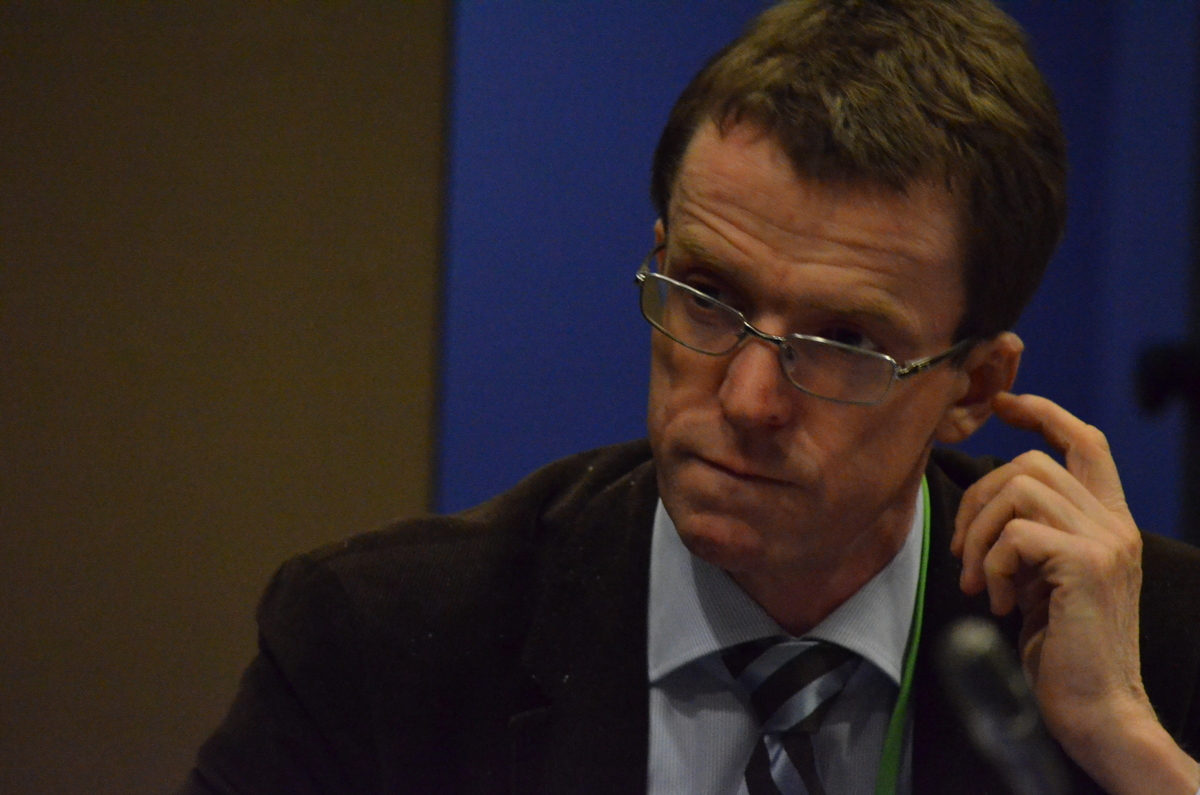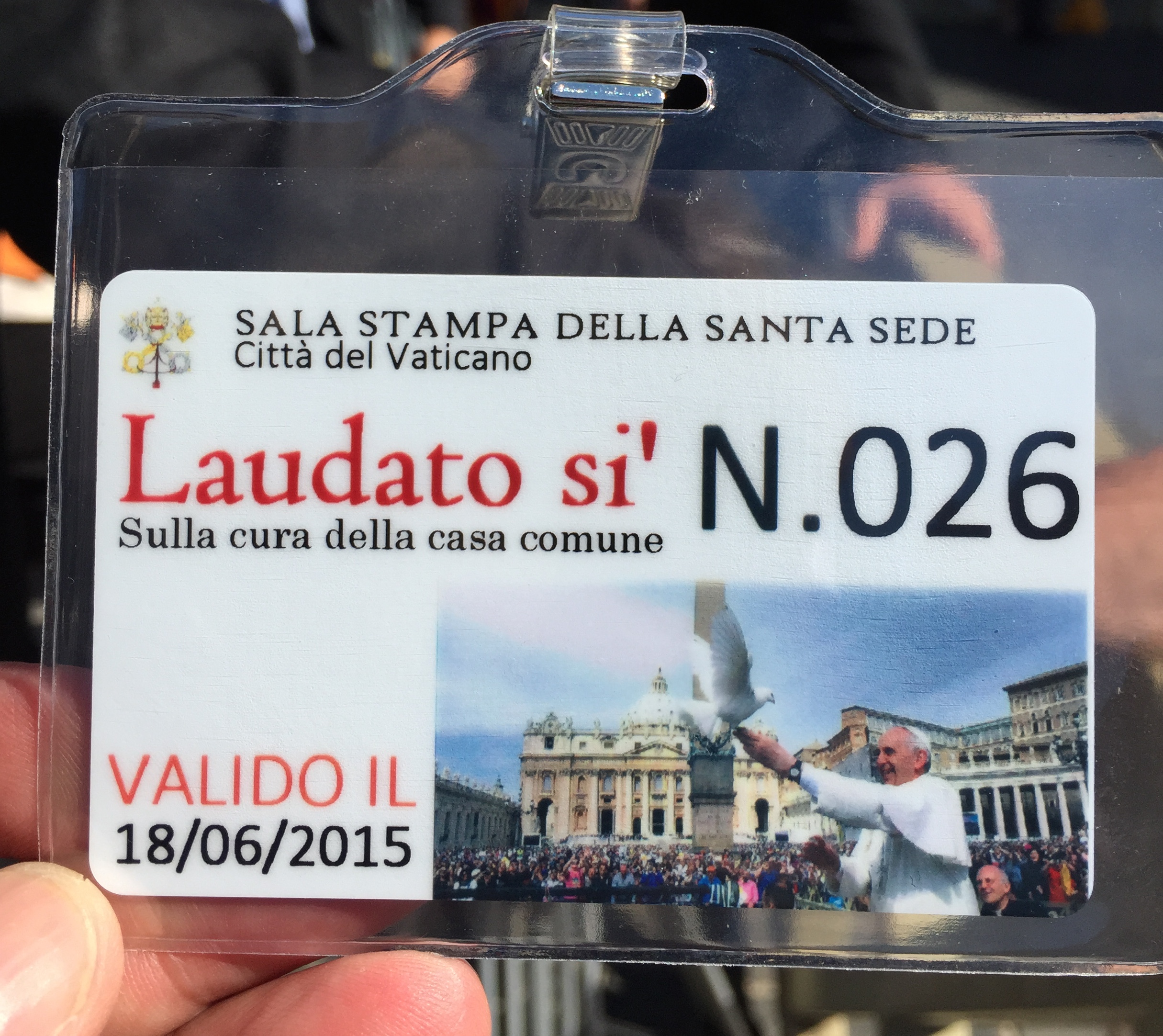
PARIS – Beyond being the host country from which the Nobel Peace Prize is awarded each year, it's fair to say that Norway doesn't occupy a prominent place on the world stage, nor often make global news.
But at any given United Nations climate summit, including COP21 in Paris, this Nordic country plays an outsized role, and has a far outsized influence, for a small northern nation of just 5 million people, roughly half the size of North Carolina.
Why? The answer is oil wealth.
Per Pharo is Norway's director of Climate and Forest Initiatives. He's not a high-powered climate negotiator. He's a sort of Nordic Santa Claus, endowed with billions in Norwegian oil money and given the directive to do good by the planet with the deep well of cash at his disposal.
"We have a tradition of a fairly high-level of foreign aid, which translates into high contributions to climate finance," said Pharo in an exclusive interview with mongabay.com at COP21. "We are not part of the EU, so we can play an independent role in the negotiations. That allows us to be ambitious in what we should achieve here. We are seen as a small, nonthreatening actor that can play a facilitative role."
Even with 100 world leaders, including President Obama, jostling to stand center stage at COP21 on November 30th, the summit's opening day, Norway managed to rise above those heads of state and gain attention. It announced it was renewing its pledge of $3 billion to the REDD+ rainforest-saving initiative and joining ranks with Germany and the United Kingdom, who kicked in an additional $2 billion.
"I am hopeful about REDD," says Pharo, whose fund invests heavily in preserving Brazil's forests. "The opportunities are huge."
Norway's doublethink
While Norway's environmental generosity is exactly the kind of first-world assistance to developing nations that many policy makers say is needed to achieve climate change goals, some critics question the contradictions of the program.
"It is hypocritical for Norway to be drilling [so extensively] while at the same time saying it is deeply concerned about climate change," said Samantha Smith, who lives in Norway and works now for WWF International, an environmental NGO. "We don't live in that world anymore where you can do both of those things. This country has to choose."
But Norway isn't choosing. It's doing both: drilling and donating to preserve forests. As a per capita percentage of foreign aid given from its national budget, Norway ranks very high, just behind Sweden and Luxembourg as a world leader at 0.99 percent. Norway also ranks as Europe's No. 1 oil exporter (it is the world's 15th largest oil producer) — making it a leading contributor to greenhouse gases.
"It used to be you could drill all the oil you wanted while supporting worthy efforts to keep forests standing," said Smith, who formerly worked for Statoil, Norway's state-owned oil company, from 2007 to 2011 in its renewable energy division. "That's over. We now live in a world where 80 percent of fossil fuel reserves have to stay in the ground if we are going to keep global warming under 2 degrees Celsius [3.6 degrees Fahrenheit] by 2100. That's it. That's reality."
Norway suffers from other climate policy contradictions: Even though it puts a huge tax on gasoline — gas costs roughly $12 a gallon there — its highly polluting transportation sector is largely unregulated. Norway, whose fossil fuel emissions are relatively low, will also not meet the voluntary reduction targets it set for itself at COP21, Smith said.
All of these contradictions may go a long way toward explaining Norway's and Pharo's commitment to REDD. It allows countries like Norway to keep drilling and burning fossil fuels, while offsetting its own carbon production. It does this by paying tropical countries to reduce deforestation, keeping more forests standing, and thus providing carbon sinks for the pollution Norway generates.
Norway's pledge; Big Oil's Kodak moment
Pharo, of course, doesn't see it that way.
"Our pledge is to cut emissions by 40 percent along with the EU by 2030," he said. "We think that's possible. And we'll do this without international offsets. Most of this will come from burning less fossil fuels, but you use a lot of other tools.
"In Norway, we are 95 percent hydroelectric. Our emissions from power generation are very low. We have other challenges. We have need for a lot of transport of goods. We have the offshore [oil] sector, which burns a lot [of fossil fuels]. But for parts of Europe, coal is a real issue. That's not a problem we have."
Some critics say that preserving forests while fueling climate change is merely a misleading shell game. Statoil, Norway's state oil company, has a presence in more than 30 countries around the world. It also has open-ocean oil concessions with Norway that span decades, with no commitment in sight to reduce its drilling. And while Norway's carbon emissions may appear low, it is just like big oil exporters Canada and Saudi Arabia: the huge amounts of oil which Norway drills, from which it profits royally, are sent elsewhere and become some other country's carbon emissions problem.
"We are delighted to see Statoil pull out of its Arctic drilling [plans]," said Sharan Burrow of Australia, general secretary of the International Trade Union Confederation. "But we are very disappointed that this company, with the centrist government that exists, is not committed to transitioning to become a 100 percent renewable energy company. They could be the champions of the world. Instead, they are lagging behind."
Norway isn't unlike other industrial nations with vast oil wealth. They are not "keeping it in the ground," which is the mantra of environmentalists at COP21. They are drilling, exporting and burning, and they are a big part of the global warming problem. But those other countries aren't committing billions, like Norway, to preserve rain forests primarily in Latin America to work as carbon sponges.
"We have a tradition of active outreach that goes beyond the diplomatic, and into civil society organizations," Pharo said. "Norway generally has a strong trait that we should play an active part in the world. As a fairly small, rich nation, we should; we have strong interests in acting this way."
With REDD, Pharo stressed that there are benefits beyond the carbon offsets Norway claims.
"The case for participating in REDD began out of self-interest," he noted. "It started as mitigation, but we now see there are a number of benefits that goes along with this — like preserving biodiversity in these forests. We save a lot more than just trees. And it's good for the local economy (of Brazil, Colombia or Peru) as you reduce deforestation."
But what about Statoil? Why isn't the company reducing its drilling and using its great wealth to become a leader in wind or solar energy?
Smith, who worked at Statoil, believes she knows why. In the four years prior to the UN climate summit in Copenhagen, there was great optimism that the shift to renewables was real and immediate. Statoil ramped up its renewables division and pioneered offshore projects like floating wind platforms.
Then the Copenhagen COP failed under the weight of its own high expectations, Smith said, adding that, "People decided then that change wasn't coming. We were still making way more money on oil and gas. We lost our moment."
She explained further: Companies like Statoil should be viewed more like mining companies, not members of the energy sector. What they do, and do well, is drill. But making and managing solar panels and wind turbines? That's a completely different sector requiring completely different skills.
"Think about Kodak," she said. "They made cameras and film. Suddenly, people didn't need either and they couldn't adapt. The oil and gas industries are having their Kodak moment right now."
Norway's promise
Pharo doesn't agree: "Anyone looking seriously at all the [carbon] mitigation opportunities we have, will realize we have to pull every lever available, full stop. There is no picking and choosing. Innovation is still coming. The gradual change of the car fleet is important; the need for oil is going to fall."
But Smith is impatient. She insists this story needs a hopeful ending, and it needs to come quickly. She tries to supply one: In Norway, Prime Minister Erna Solberg is touting an imminent "green shift." Thanks to the country's fossil fuel wealth, it has an Oil Fund surpassing $1 trillion that will keep Norwegians free of financial worry. With its great wealth, educated workforce, high rates of unionization and active civil society, the country is seen as being ideally positioned to transition completely away from fossil fuels.
"If you can't do that in Norway," Smith said, "if you can't do something for people who are losing their jobs in the oil sector because oil prices are plummeting, if you can't take these assets and turn them into an example of how you have a fair transition to greener sectors and jobs, I don't know where you can do it."
"I live in Norway," Smith concluded. "I have kids growing up there. I want to see a country that has so many things going for it show the rest of the world how it's done. I really do think they can do it."






